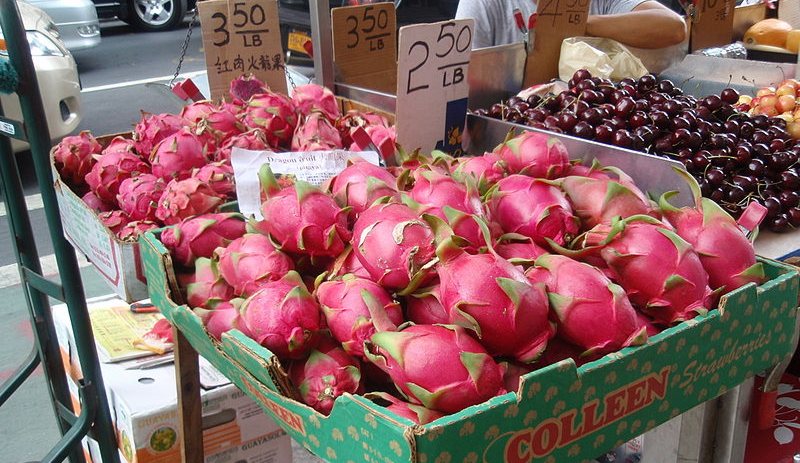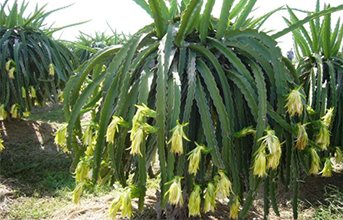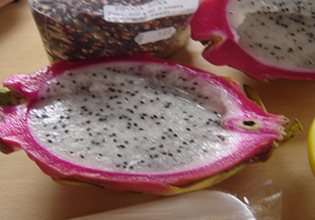 Dragon fruits on sale in New York © Maria Azzurra Mugnai/GNU/afrol NewsAgriculture - Nutrition | Science - Education Cape Verde to produce dragon fruit
In Cape Verde, the exotic dragon fruit will probably go under its Brazilian names, pitaya or pitahaya, when the National Institute of Agricultural Research and Development (INIDA) in brief will release the semi-cactus to Cape Verdean cultivators.
Further, the exotic plant also serves as an ornamental plant, easily grown in gardens and parks - which is an important argument in the tourist destination Cape Verde. INIDA recommends Cape Verdean cultivators to embrace the new fruit crop, holding it is "high on vitamins and flavour," and easily could be used in the archipelago's Creole cuisine. Further, the plant "adapts easily and well to conditions of water shortage and may further contribute to the diversification of fruit production and income of Cape Verdean farmers," according to the institute. "The flesh can be consumed fresh and used in the preparation of soft drinks, ice cream, salads, appetisers, yogurt, mousses, jellies and jams," according to INIDA. The state institute says it has imported a large amount of dragon fruit plants from a major Canary Island producer. So far, they have been planted at INIDA's research plots among bananas and pineapples. The new fruit plant will now be distributed to Cape Verdean cultivators. By staff writer © afrol News - Create an e-mail alert for Cape Verde news - Create an e-mail alert for Agriculture - Nutrition news - Create an e-mail alert for Science - Education news
On the Afrol News front page now
|
front page
| news
| countries
| archive
| currencies
| news alerts login
| about afrol News
| contact
| advertise
| español
©
afrol News.
Reproducing or buying afrol News' articles.
You can contact us at mail@afrol.com









